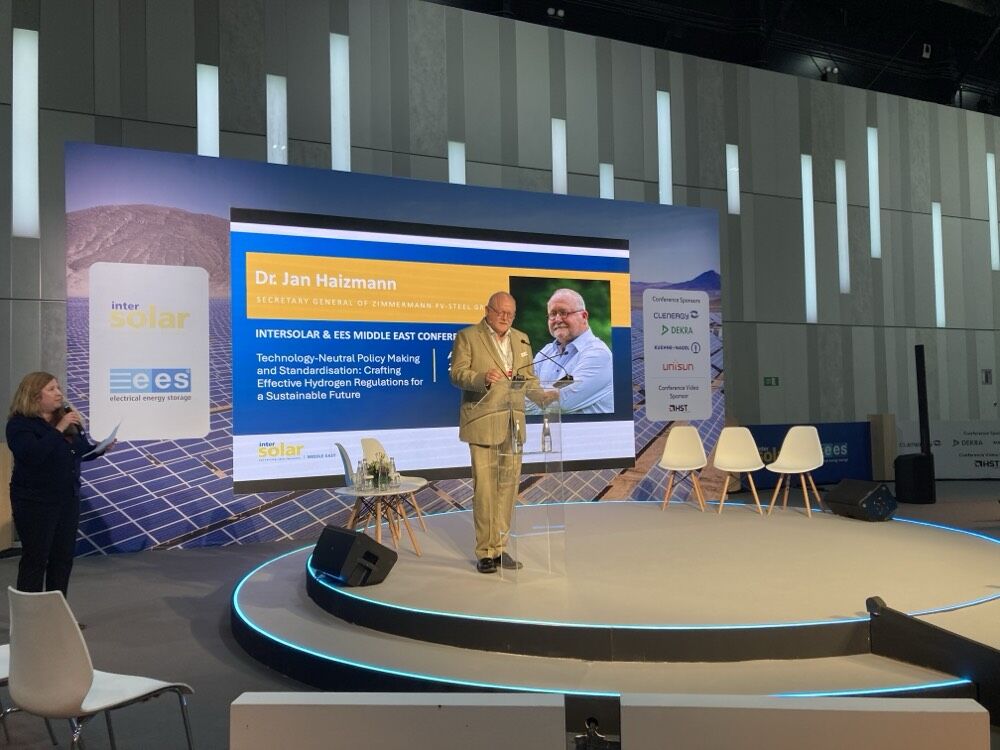
At Intersolar & ees Middle East, held as part of Middle East Energy 2025 in Dubai, Jan Haizmann, Secretary General of the Zero Emissions Traders Alliance (ZETA), presented a compelling vision for enabling the flow of clean energy, especially low-carbon hydrogen, across borders through smart infrastructure, robust market mechanisms, and forward-thinking policy frameworks.
In his remarks, Haizmann pointed to Europe’s ambitious clean energy targets, including the import of 10 million tons of green hydrogen by 2030. This demand is reshaping global supply chains and regulatory landscapes. He emphasized the urgent need for energy exporters to align with evolving compliance obligations, particularly under the Carbon Border Adjustment Mechanism (CBAM), highlighting that similar mechanisms are likely to emerge worldwide.
The presentation addressed several critical regulatory challenges, including:
✅ EU requirements for hydrogen to qualify as RFNBO (Renewable Fuels of Non-Biological Origin)
✅ The complexity of proving renewable energy additionality
✅ The importance of temporal matching between renewable generation and hydrogen production
Haizmann also noted the lack of a regional electricity spot market in the Gulf Cooperation Council (GCC), with Oman standing out as the only exception. ZETA recommends developing incentives to support cross-border electricity trading and regional market integration as essential steps toward unlocking the hydrogen economy.
With low-cost solar power and a strategic geographic position, the Middle East is well-placed to become a global hydrogen powerhouse. Yet, unlocking this potential requires more than infrastructure, it calls for the creation of a regional hydrogen hub, backed by:
🔹 Transparent price formation
🔹 Standardised products and contracts
🔹 Digital trading platforms
🔹 Harmonised IT and certification frameworks
A well-designed hub model would mirror proven practices in global gas markets, helping reduce price risk for long-term offtake agreements and enabling effective participation in international trade.
Oman was spotlighted as a regional frontrunner, with a hydrogen hub already in planning and a functioning electricity spot market in place, offering a promising model for its neighbors.
As a non-profit foundation, ZETA is committed to building liquid, net-zero emissions markets for clean energy commodities across the MENA region. By advocating for the right tools, digital platforms, aligned policies, and clear standards, ZETA supports the systems that will power the next generation of sustainable energy trade.